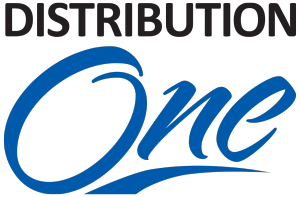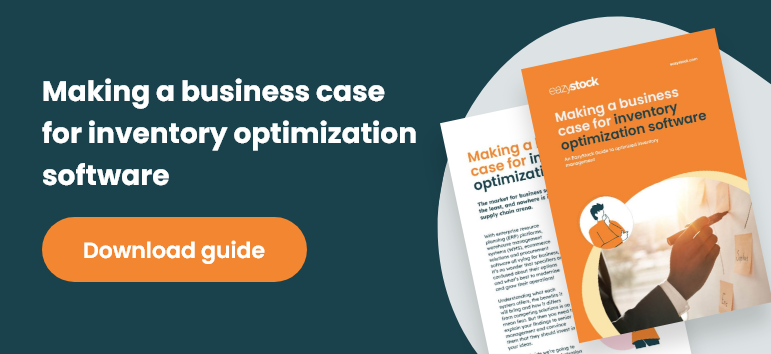Best practices for optimizing Distribution One ERP
Understanding Distribution One’s ERP-ONE software
All successful wholesale distributors have a vision for how they wish to grow and develop, but there is often a gap between the idea and reality. While the corporate strategy may be sound, it is easy for this vision to become lost in the minutiae of operations management. The various functions of the business are different with inevitable conflicts between departments, but technology should bridge those gaps and unify organizational functions. This is where Distribution One’s ERP-ONE Software comes in.
 Company leaders implement ERP solutions to deliver continuous improvement and centralized processes for their business. However, some fall short due to either software limitations or users who circumvent daily procedural requirements resulting in decisions based on incorrect data. Where ERPs are concerned, inventory control is the hardest measurement to manage. Most ERPs struggle to support accurate forecasting models, service level requirements and cost mitigation management. To be effective, ERP providers must offer tools and training to ensure that companies are receiving the highest benefits from their software.
Company leaders implement ERP solutions to deliver continuous improvement and centralized processes for their business. However, some fall short due to either software limitations or users who circumvent daily procedural requirements resulting in decisions based on incorrect data. Where ERPs are concerned, inventory control is the hardest measurement to manage. Most ERPs struggle to support accurate forecasting models, service level requirements and cost mitigation management. To be effective, ERP providers must offer tools and training to ensure that companies are receiving the highest benefits from their software.
Breaking down ERP-ONE (Distribution One)
The purpose of this article is to analyze Distribution One’s ERP-ONE software for wholesalers and distributors that are looking to get more out of their enterprise resource planning tools. According to Software Advice, ERP-ONE is able to support multiple industries, including but not limited to: Industrial Distribution, Fastener Distributors, Janitorial and Sanitary Suppliers, food & beverage, and general distributors. The software review site recommends ERP-ONE for businesses with revenues between $5 million and $50 million, employees ranging from 11-250+, and distributors with a user base of over 5.
Distribution One ERP system is a popular tool used by wholesale distributors to manage everything from customer relationship management (CRM), warehouse management, financial management, accounting and supply side ordering. Let’s look at the core areas where Distribution One adds strategic value for users.
Functionality of ERP-ONE
There are three core areas where distributors can gain greater insight into their business operations.
Customer Relationship Management (CRM)
Customers are the heartbeat of every business. The CRM functionality within ERP-ONE is designed to aid internal sales teams and sales personnel in the field with all the information they need to identify opportunities from new and existing customers to close more deals. These features are designed to be a one-stop solution for accessing all customer data in one place. The ERP-ONE CRM modules pull applications together for a quick and easy way to manage customers or prospects and can also be used as individual modules if needed.
As with any CRM, users must be properly trained to correctly utilize and update information within the software. Distribution One offers individual and group level process-based training and has multiple resources to assist users, chief among them being US-based customer service agents.
Warehouse and inventory management
Distribution One offers item level detail screen shots for all inventory carried in stock. The system tracks product description details, pricing fields, cost fields, item status (inventory to keep, inventory to replenish, web items, etc.) and vendor data all within its “manage inventory” tab. ERP-ONE also has a look up search feature for users looking to find specific items in stock.
This ERP software supports a tracking and barcoding system that allows stocking levels to be observed in warehouse and in transit. Purchase Order Suggested Buy capabilities recommend purchases for single location or consolidated purchasing based how inventory is managed (Just In Time, Min/Max, EOQ, Hits, or forecasting based on 20 levels of formula’s to determine the best stocking method). These settings can be controlled at the item warehouse level to handle the unique situations that arise per item.
The management of these options are able to be set with automated tools built into the software and can be controlled at different levels based on specific users and when items need to be adjusted. Because these options and tools are only effective if the data is correct, ERP-ONE provides tools that that require information or processes to be followed for accuracy.
EazyStock works along side ERP-ONE in this area to further optimize inventory management processes to break down item level demand classes into 9 different patterns to guide buyer decision making. EazyStock also extends a purchasing simulation tool to project ERP-ONE Purchase Order suggestions for even greater buyer control and analysis.
Purchasing, invoicing and billing
ERP-ONE allows for users to manage supplier purchasing based on information contained within the system. It aids with supply chain management by correlating backorders and current warehouse stock with orders to suppliers. ERP-ONE is very good at tracking the movement of inventory in and out of the warehouse and takes into account purchasing for all locations for determining inventory transfer from one location to another or purchase per location, similar to EazyStock’s redistribution capabilities.
ERP-ONE’s suggested buy option can take into account today’s needs and looks at current purchases and vendor levels down to quantity, lead-time, and freight, which can be driven at levels all the way down to restocking internal locations in each warehouse for replenishment. Because items can be handled from overseas in transit, internal and external kit processing purchasing, and labor cost tracking, ERP-ONE provides full inventory control to what has been sent for modification to vendors and consignment type customers.
The whole order process from the initial point of order to payment is fully automated in ERP-ONE, which saves time when managing vendor accounting. The system includes automatic discounting for large orders and calculates the cost of the goods to the business to ensure sales are profitable. The system also has built-in auditing capabilities.
Distribution One’s ERP-ONE also has the capability to tag orders and items as “un-usual sale” and identify spikes that may arise due to initial stock orders for customers. The software also has the ability to handle vendor and customer pricing based on contracts on either side down to a vendor to customer special cost and price.
6 ways EazyStock adds value to ERP-ONE users
At the end of the day, ERP-ONE is a powerful ERP system for wholesalers and distributors. Users of the system that want to extend further inventory control tools to their already robust set of features can evaluate the following value added options outlined below that come with EazyStock’s Inventory Optimization Solution.
- Excess stock reports: This report shows current stock balances, units of excess stock on hand and the dollar value associated with excess stock levels. With EazyStock, users have insights into stock level overages and can work smarter in ERP-ONE when calculating reordering, maximum or minimum order quantity assumptions. Users only order what they actually need, when they need it, effectively reducing carrying costs associated with inventory.
- Obsolete stock reports: Planners have access to obsolete stock reports which outline items that have not had demand or sales for more than 12 months.
- Risk of run out reports: Risk of run out reports in EazyStock help planners track items that are at risk for backorder stock situations based on current inventory levels, supplier leads times and real-time customer demand. Alerts and notifications also help planners ensure the highest level of availability for high demand items.
- Inventory planning simulation (policy matrix): EazyStock’s Inventory Policy Matrix is a powerful tool that gives both inventory and financial planners the ability to simulate stock/no stock decisions and their effects on the inventory value, number of part numbers in stock, and order fill rates.
- Item level demand patterns: Demand forecasts are automatically calculated for each item displayed with historical forecast and sales data. Furthermore, users have the ability to drill down into every item or SKU to see detailed information such as lead-time, unit cost, stock level, stock value and forecasted demand.
- Seasonality: Ability to visualize seasonal trends in inventory and historical sales to aid in smarter replenishment practices.
Get Started Today
EazyStock’s inventory optimization software is an add-on to your current ERP that eliminates the need for manual data entry and procurement calculations.
EazyStock eradicates the reactive approach to management and helps your business become proactive by analyzing historical sales data, taking seasonal trends into account, to accurately predict reorder quantity – all done without any manual input. This automation helps pare down inventory to the right levels while making sure you always have in stock what you need, when you need it.
As a first step, it is always advisable to perform an analysis: should the company either search for a new ERP solution, when the needs can’t be fulfilled any longer, or is the more effective way to look for an ERP add-on that is docking to the current solution?






